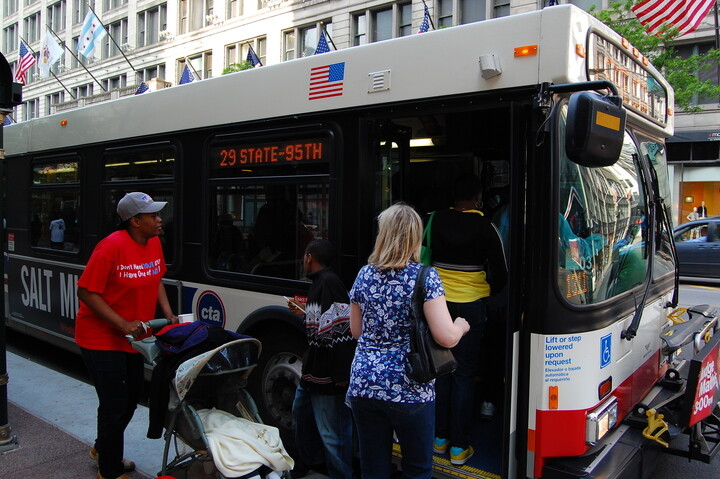Good news for commuters. New legislation will enable more public transportation users to save on their daily commuting costs, making transit more affordable and accessible in metropolitan Chicago.
On July 28, Gov. J.B. Pritzker signed the Transportation Benefits Program Act into law. It expands the Regional Transportation Authority Transit Benefit Fare Program, which allows people to pay for transit and parking using pre-tax dollars. The legislation mandates employers with 50 or more full-time employees and located within 1 mile of a fixed-route transit service, such as a CTA or Metra station, to offer the program to their employees by Jan. 1, 2024.
Employees may elect to withhold up to $300 in pre-tax payroll deductions to purchase transit passes or reloadable transit pre-paid cards as well as load fares directly to their existing Ventra or Pace cards. By having their commuting costs automatically deducted from their paychecks, participants in the Transit Benefit Program are able to reduce their federal and state income taxes, saving up to 40% annually on the cost of their commutes.
In addition, if participants choose to use the parking benefit option, they can use pre-tax dollars to pay for CTA, Metra, and Pace Park & Ride stations and other qualified parking garages.
Businesses also reap money-saving benefits. Because of the pre-tax nature of the program, companies can save up to 7.65% in payroll taxes.
The financial advantages of the Transit Benefit Fare Program encourage more residents to use public transit, a sustainable mode of transportation that has proven effective in fighting climate change and traffic congestion. In 2018, the public transportation system saved the Chicago region 3.7 million metric tons of greenhouse gas emissions, according to the RTA.
By offering the Transit Fare Benefit Program at more workplaces, more residents will be able to access affordable and reliable public transportation and contribute to improving sustainability in the region.

